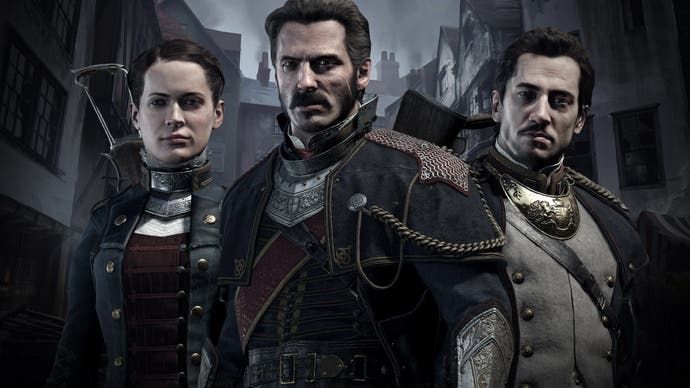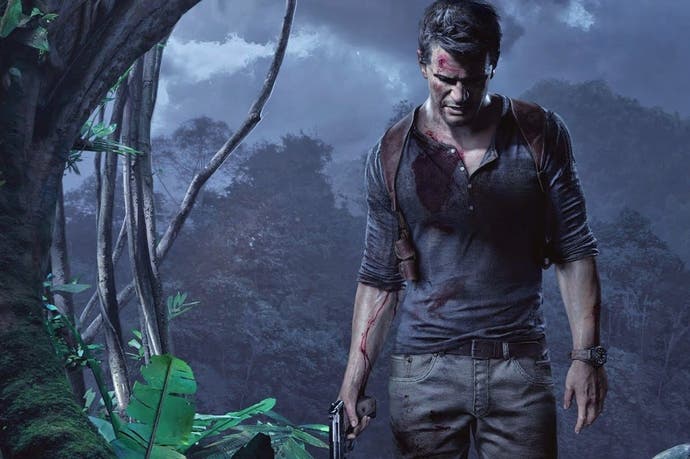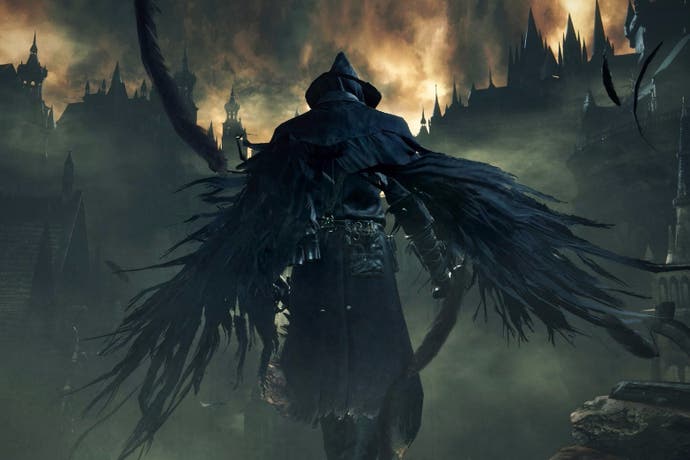PlayStation in 2015: Goodwill ensured that the party continued
Shu in.
Sony had its Great Gatsby moment at this year's E3 - and not the whole 'boats against the current' part. With the likes of Shenmue, Final Fantasy 7 and The Last Guardian, Shawn Layden played the role of Jay, throwing shirt after beautiful shirt high into the sky. Kickstarters! Remakes! Cat-birds! Dazzling!
And, as with Gatsby himself, there's a question of where all this success has come from. The PS4 remains comfortably ahead of Xbox One in terms of every metric that matters. But what, exactly, is Sony getting so right? And can the party continue for a whole generation?
According to the numbers, it probably can. Reading back through a year of PS4 news, it's only the astonishing sales figures that truly leap out. 18.5 million units sold worldwide: that's a report from January, which also chucks in the fact that 81.8 million games have been purchased and 10.9 million people subscribe to PlayStation Plus. By March, the global console tally is 20.2 million - the fastest and strongest growth in PlayStation hardware history, apparently - and by April it's 22.3 million.
By May, there were 2 million sales of PS4 in the UK alone, which is a faster uptake in the first 18 months than even the PS2 enjoyed. By early July, Jim Ryan is suggesting that the market share in continental Europe is often as high as 90 per cent. By late July, the global tally is 25.3 million. That's a comfortable enough position to indulge David Cage once again, right? What's the worst that could happen?
If the numbers - and the regularity with which they're updated - really stand out when you look back on the year, something else does too. Where are the games? When Uncharted 4 slipped, Sony struggled to find a replacement.

2015 started about as well as it could do, anyway, with Bloodborne providing exactly the kind of exclusive that counts. It's relevant, it's unique, and it's absolutely brilliant. Miyazaki's latest also suggests that Sony's able to learn from past errors. The platform holder may have bungled Demon's Souls and thus missed the opportunity to secure publishing rights for the Dark Souls series, but it made up for that on the twisting streets of Yarnham.
Here's the thing, though: Bloodborne isn't where things started. Bloodborne came out in March, and before that we had The Order: 1886, a posed department store mannequin of a game, chic, unconvincing and creepy for all the wrong reasons. After that, you've got Until Dawn and The Uncharted Collection: nicely realised, perhaps, but unconvincing as system sellers. When it comes to digital offerings, there was Everybody Goes to the Rapture, at least, and the Rocket League PlayStation Plus deal turned out to be genius, but as Christmas came around, the third parties were left bearing the brunt. Star Wars and Call of Duty are Sony's big hopes for the end of 2015 - although presumably the real hope is that this insane momentum driving sales simply keeps going.
And it probably will. Faced with The Order and Until Dawn, it's tempting to argue that Sony's dominance in 2015 is still a story about the propulsive power of goodwill, in which the PS4 is still benefiting from Microsoft's mistakes with the conception of Xbox One. You know, the licence-ownership catastrophe, the TV box catastrophe, and the Kinect catastrophe which, added together, hobbled the Xbox's image, technical performance and pricing - to the extent that the balance of many gamers' friends lists tipped from Microsoft's platform to Sony's, starting a domino effect. To rub it in a little more, Sony's actually benefiting from some of Microsoft's old moves, clinching the kind of deals with COD and Battlefront, say, that the 360 was built on: deals that make supremacy seem assured.

Elsewhere, though, not everything's been going brilliantly for Sony. The Vita, one of the most genuinely loveable handheld consoles since the Game Boy, has been abandoned to the indies: I'm happy with that, but is PlayStation management? In October, Sony reiterated the fact that triple-A development was finished for the platform, and before that, in September, Shuhei Yoshida stated that the climate was not healthy for a successor. Meanwhile, on the PS4, PlayStation Now faltered, with too steep an asking price, while the paid emulation of old PS2 games, where past purchases are irrelevant, makes Microsoft's backwards compatibility program look enormously generous. Even PlayStation Plus might be a potential problem. Sure, free games have provided an enormous incentive for audiences to give Sony a monthly payment, but they've also neatly disincentivised spending money elsewhere on the store. Why take a punt on a game when you'll only kick yourself if you get it for free a month later? How much longer is the indie goodwill going to survive in this climate?
As for the future, Paris Games Week and the PlayStation Experience event in San Francisco provided an interesting glimpse of what's to come. On the plus side, Rez Infinite may provide the newly christened PlayStation VR with its first must-buy, and it's hard to begrudge a sequel to Ni no Kuni. On the negative, aside from wonderful curios like Wild, there's little that seems genuinely new.
What's Shawn Layden dreaming of this Christmas? He knows that there are real prospects in the future: Horizon: Zero Dawn looks great, although it desperately needs a more memorable name, while No Man's Sky almost cannot fail by this point - it cannot fail to sell, at any rate. Nier promises more goodwill, along with Shenmue and The Last Guardian - and then there's Hideo Kojima, whose announcement of PlayStation exclusivity received exactly the kind of warm reception that failed to materialise for Microsoft's deal with Rise of the Tomb Raider. A sentimental reaction, considering Kojima's history with PlayStation, but perhaps not a fair one.
At the end of last year, there was a feeling that Sony had basked in its good favour long enough, and that it was time to get to work on some of its promises. Turns out that the good favour has lasted another 12 months, and the promises are starting to pile up. 2016's party is going to have to be pretty special.

